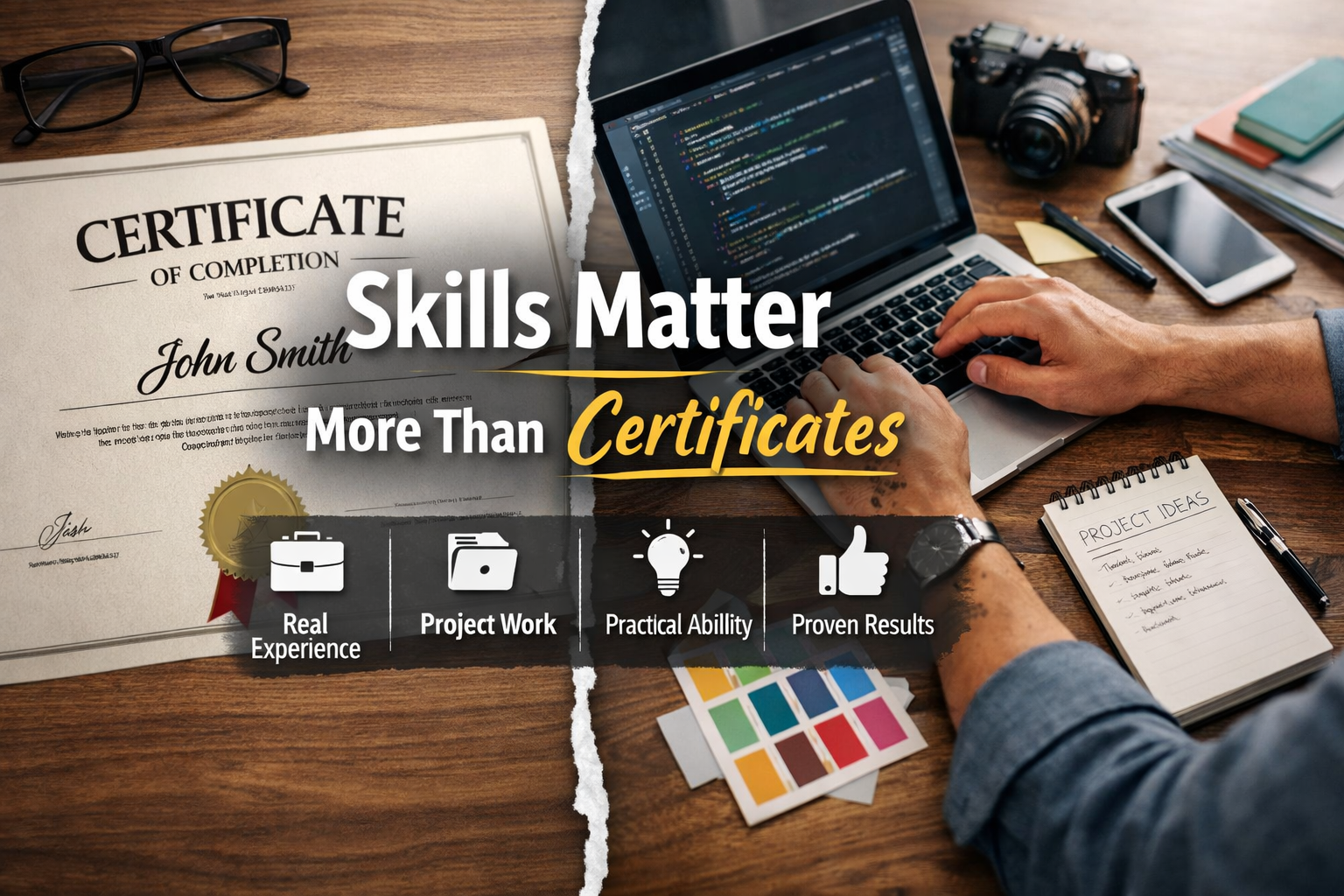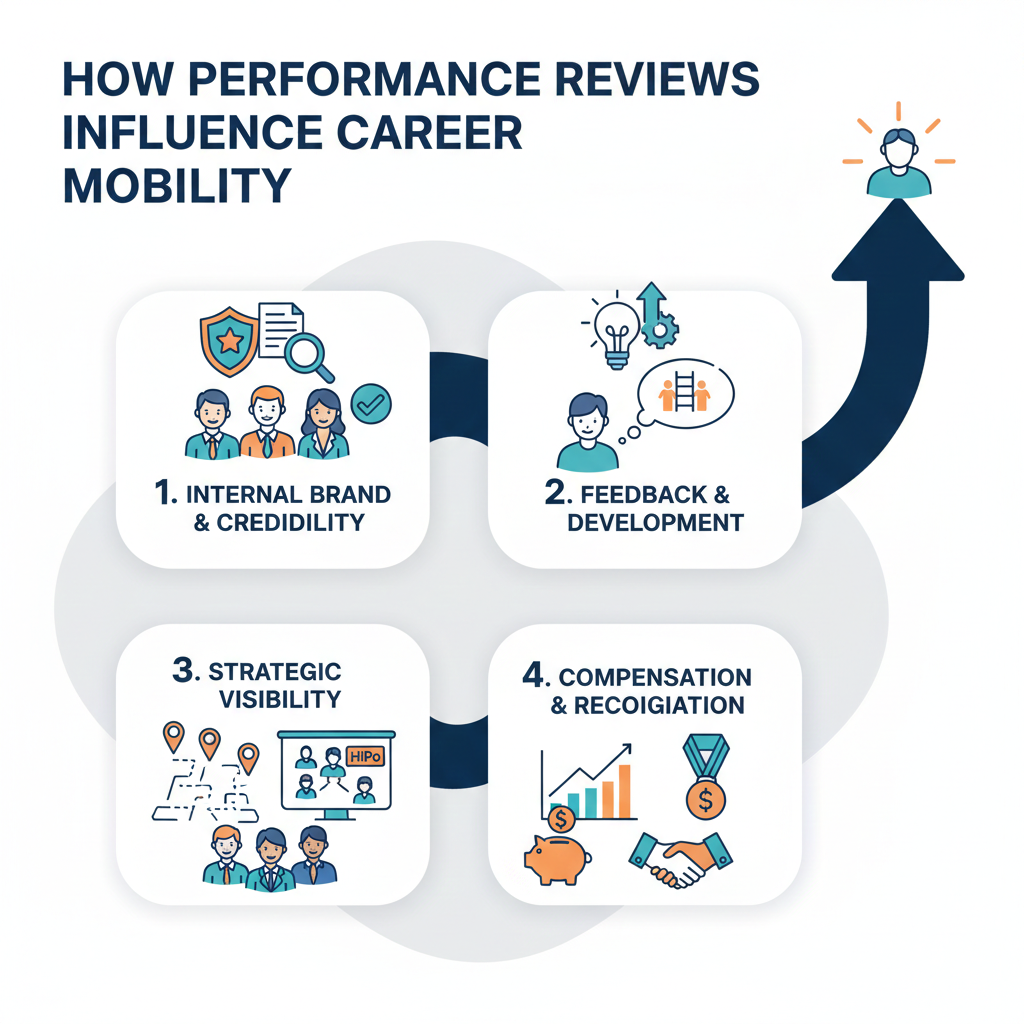Introduction
Transitioning from a fresher to a managerial role is a difficult task for those who don’t know the right steps to take to develop their skills as a fresher.
Every fresher dreams of reaching the best stage in their career — to grow to a higher level where both their respect and learning increase. But sometimes, it becomes very challenging because they don’t understand where to start or how to begin.
Whether you are a fresher or someone who wants to develop your career, you should definitely read this article.
Want a quick summary? Click here.
The Challenges Fresher Face in Landing Jobs.
- Too many job portals but no clear guidance
In today’s time, there are many job portals, but the problem is that they get confused about which platform is best for them. They can lose their focus by applying everywhere and there is no clear strategy.
Tip – You should use platforms that are fresher-friendly, such as Best Job Tool.
- Rejection due to no experience
The biggest challenge is that companies demand experience, but freshers only have academic knowledge. Because of this, the resume did not get shortlisted and pressure had to face rejection many times.
Tip – You can do a project like an internship to gain experience, either paid or unpaid.
- Poorly optimized resume
Freshers mostly make a generic resume, which is not ATS Applicant Tracking System friendly. The result of this resume is that it did not reach the recruiter. Chances of getting shortlisted get low because of no proper keywords and no formatting.
Pro Tip – Read this article to optimize your resume and make it professional as well as impressive.
- Limited networking opportunity
Networking is a strong tool in a job search, but freshers have a less professional network. They neither have contacts in the industry nor do they know about platforms like LinkedIn.
Tip – To build a network, you can use a platform like LinkedIn.
- Lack of Interview preparation
Many freshers learn technical skills, but cracking an interview is another skill. They got stuck in the interview round because of their communication skills, confidence, and problem-solving approach. It is difficult for them to handle this without mock interviews and practice.
Tip -Read this article to know how you can crack an interview.
1. Understanding What a Managerial Role Involves
A managerial role doesn’t mean holding a position only; instead, it means leading people, managing their work, and making important decisions. A manager is like a guide which guide the team in the right direction.
Key responsibilities :
- They organize work and make a proper strategy for efficient work.
- Assigning tasks to team members according to their strengths.
- Maintaining clear and regular communication with the team.
- Finding solutions to every challenge calmly.
An employee focuses more on their assigned task and their goal is to complete their task efficiently and on time. But managers think differently they are responsible for the performance, motivation, and growth of the team.
2. Build the Right Skills as Fresher
In 2025, job market is changing rapidly because of the AI, automation, and remote work trend. Some skills demand are growing day by day such as;
a) Technology & Data Skills
- AI & Machine Learning Basics
- Data Analytics & Visualization
- Cybersecurity Awareness
- Cloud Computing
- Automation Tools (Zapier, Power Automate)
b) Digital Communication Skills
- Remote Collaboration Tools (Notion, Trello, Slack) ka use
- Social Media Management
- Online Presentation and Public Speaking
c) Creative & Problem-Solving Skills
- Design Thinking
- Creative Content Creation
- Critical Thinking & Decision Making
Freshers can learn these skills for their career development.
3. Learn from Managers Around You
Learning from managers around you is the best way to develop leadership skills. Learn how your seniors handle pressure, conduct meetings, and solve conflicts. These are real-life lessons that you cannot find in any book.
Seek mentorship
Take guidance from experienced managers. Ask them how they handle challenges and develop leadership skills in their career. Their experience is very valuable for your growth.
Ask for feedback
Do not be ashamed of taking feedback. Whether the feedback is positive or constructive, accept and implement. This habit helps you to improve on a professional and personal level.
4. Networking and Building Connections as Fresher
Networking is very important in job hunting because, with the help of networking, you can reach those opportunities that are sometimes unavailable on job portals. Many companies hire candidates freshers or through referrals, which means that if you have a strong network, you will be aware of those jobs. You get real industry insight from networking, like which skills are in demand, what the company’s culture is, or what the expectations of a specific role are.
When you interact with a professional, it also boosts your confidence and improves your communication skills. Which helps in your interview. Networking is not limited to jobs only – it can also be one way for freshers long-term career growth. If today you are having a small conversation with a professional person, no one knows, maybe the next day that person will be the reason for your big opportunity.
Freshers Should Build an Effective LinkedIn Profile –
Your LinkedIn profile is your digital first impression — it’s often the first place recruiters and potential employers check before contacting you. To make it effective, start with a professional profile picture and a clear, keyword-rich headline that reflects your role or target position (e.g., “Aspiring Digital Marketer | Content Creator | SEO Enthusiast”).
Write a strong summary (About section) that tells your career story — include your skills, achievements, and what kind of opportunities you’re seeking. Make sure to add detailed experience, even if it’s freelance work, internships, or college projects. Use bullet points to describe responsibilities and results clearly.
Also, don’t forget to:
- Customize your LinkedIn URL.
- Add relevant skills.
- Get endorsements and recommendations from colleagues or mentors.
- Stay active by posting, commenting, and engaging with industry-related content.
A well-crafted LinkedIn profile doesn’t just represent you — it works for you, 24/7.
Freshers Should Attend Networking Events –
If you are seriously looking for a job, then only applying online is not enough. Networking events like job fairs, industry meetups, webinars, seminars, or LinkedIn live sessions give you opportunities to meet real professionals. It is very helpful for your career.
Here are some practical tips that every job seeker must follow to gain maximum benefits from these events.
Research Before You Attend :
Find out who is attending – speakers, companies, and other professionals. Make a list of people or companies you want to connect with. Prepare a few questions or topics in advance.
Prepare Your Elevator Pitch :
Have a 30-second self-introduction ready where you confidently say who you are, what you do, and what you’re looking for.
Example:
“Hi, I’m Priya, a freelance content writer focusing on lifestyle and motivation. I’m currently exploring full-time roles where I can use my skills to create engaging digital content.”
Dress Professionally :
First impressions matter! Whether the event is in-person or online, dress neatly and professionally.
Be Confident but Respectful :
Don’t hesitate to start a conversation. Ask about their work, share your interests, and try to find common ground. But avoid being pushy or asking for a job right away.
Collect Contacts and Follow Up :
Exchange LinkedIn profiles or emails. After the event, send a short thank-you message and stay in touch with the people you met.
Attend Events Regularly :
The more events you attend, the better you get at networking. Over time, you’ll build a strong professional circle.
5. Using Technology to Upskill Faster
In today’s time, technology boost the speed of learning. AI tools, ChatGPT, Grammerly, and Canva like tools help to improve content, generate creative ideas, and help in understanding concept easily. Upskilling has very easy with technology.
AI tools, learning apps, and skill-building platforms
In today’s time, technology can boost your learning speed.
- AI tools
With the help of ChatGPT, Grammarly, and the Canva tool, we can improve writing, generate creative ideas, and understand concepts easily. - Learning app
Duolingo (language learning), Khan Academy (academic concepts), and Blinkist (book summaries) provide short, easy, and interactive learning. - Skill-building platform
On Coursera, Udemy, LinkedIn Learning, and Skillshare platforms, we can learn directly from experts, at our own pace, anytime and anywhere.
By using tech tools, you can make your learning process personalized and faster, which will help you prepare for your dream job more quickly.
Conclusion
Transitioning from a fresher to a managerial role is a gradual journey that demands continuous learning, consistent effort, and the right mindset. This article covered key areas such as understanding managerial responsibilities, developing essential skills like communication and decision-making, learning from mentors, taking leadership initiatives, and upskilling for future growth.
By following these steps, you’ll not only enhance your professional capabilities but also build the confidence and credibility needed to lead teams effectively. This guide will help you prepare mentally and practically for leadership opportunities, making your path from a fresher to a manager smoother and more achievable.
Explore more career advice here.







Leave a Reply